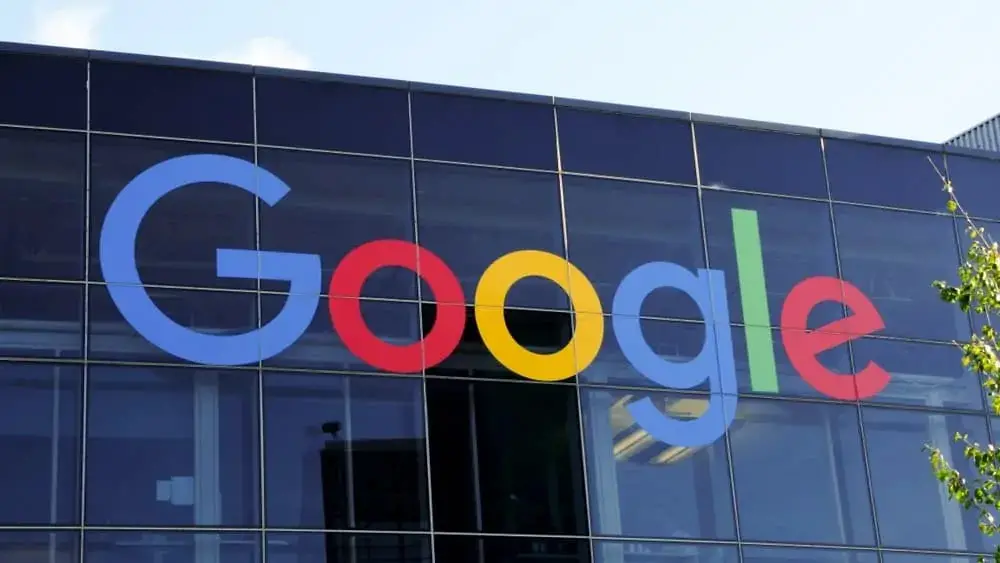
Google Core Algorithm Update Details (Who Was Hurt, Who Was Helped)

Get helpful updates in your inbox
Google Core Algorithm Update Details (Who Was Hurt, Who Was Helped)
Recently, Google officially announced that they updated their “core search algorithm”. This meant that search rankings for millions of websites across their search results shifted. Some websites benefited from the Google core algorithm update, others saw big declines in their traffic. So what did Google change?
Read about the recent June Google Core Algorithm Update (2019) results here.
I’m lucky enough to work in close proximity to data from thousands and thousands of online publishers and content creators. One of the best ways to understand what actually happened is by looking at the attributes of websites that benefited from the most recent change.
Below, I’ll look at a cross-section of 20 websites that get the majority of their web traffic from Google Search. I’ll highlight several potentially meaningful pieces of data that could play a role in their recent rankings shifts and I’ll also point out several key pieces of data that others in the space have already pointed out.
When did the Google core algorithm update happen?
Google has already stated that they make thousands of changes to the way that Google Search works every year.
In fact, many of these changes likely affect website traffic but have nothing to do with the algorithm itself. For example, if Google elects to show rich graphs or information at the top of search results instead of an organic link, that will likely affect traffic to all the websites that rank for those results, even though nothing actually changed with the algorithm or rankings.

However, about 4x per year, Google has stated that they make adjustments to their “core algorithm”.
In 2018, Google has announced 3 changes so far. Here the date ranges they announced changes on:
- March 17-24
- April 16-21
- August 1-3
While Google has already laid the groundwork for what webmasters should focus on in 2018, they have offered one additional statement regarding these core algorithm changes in 2018.
Each day, Google usually releases one or more changes designed to improve our results. Some are focused around specific improvements. Some are broad changes. Last week, we released a broad core algorithm update. We do these routinely several times per year.
As with any update, some sites may note drops or gains. There’s nothing wrong with pages that may now perform less well. Instead, it’s that changes to our systems are benefiting pages that were previously under-rewarded.
There’s no “fix” for pages that may perform less well other than to remain focused on building great content. Over time, it may be that your content may rise relative to other pages.
Real helpful, right?
Not really.
However, I do think it is important to note that Google is not asking anyone to fix anything. They choose their words incredibly carefully. It is entirely likely that there isn’t something anyone who has lost rankings is actually being penalized for.
Recovering from a core algorithm drop may be about improving content more than fixing it.
What do we know about the recent Google core algorithm update?
I think Marie Haynes did a good job of summarizing some really good points in her recent article on the early August update. Additionally, Barry Schwartz, who covers the SEO space conducted a small independent survey that suggested that health sites may have been the most dramatically affected — confirming elements of what Marie had previously outlined.
(this may simply just be due to the types of publishers that responded to his survey. It more likely all lifestyle websites were affected)
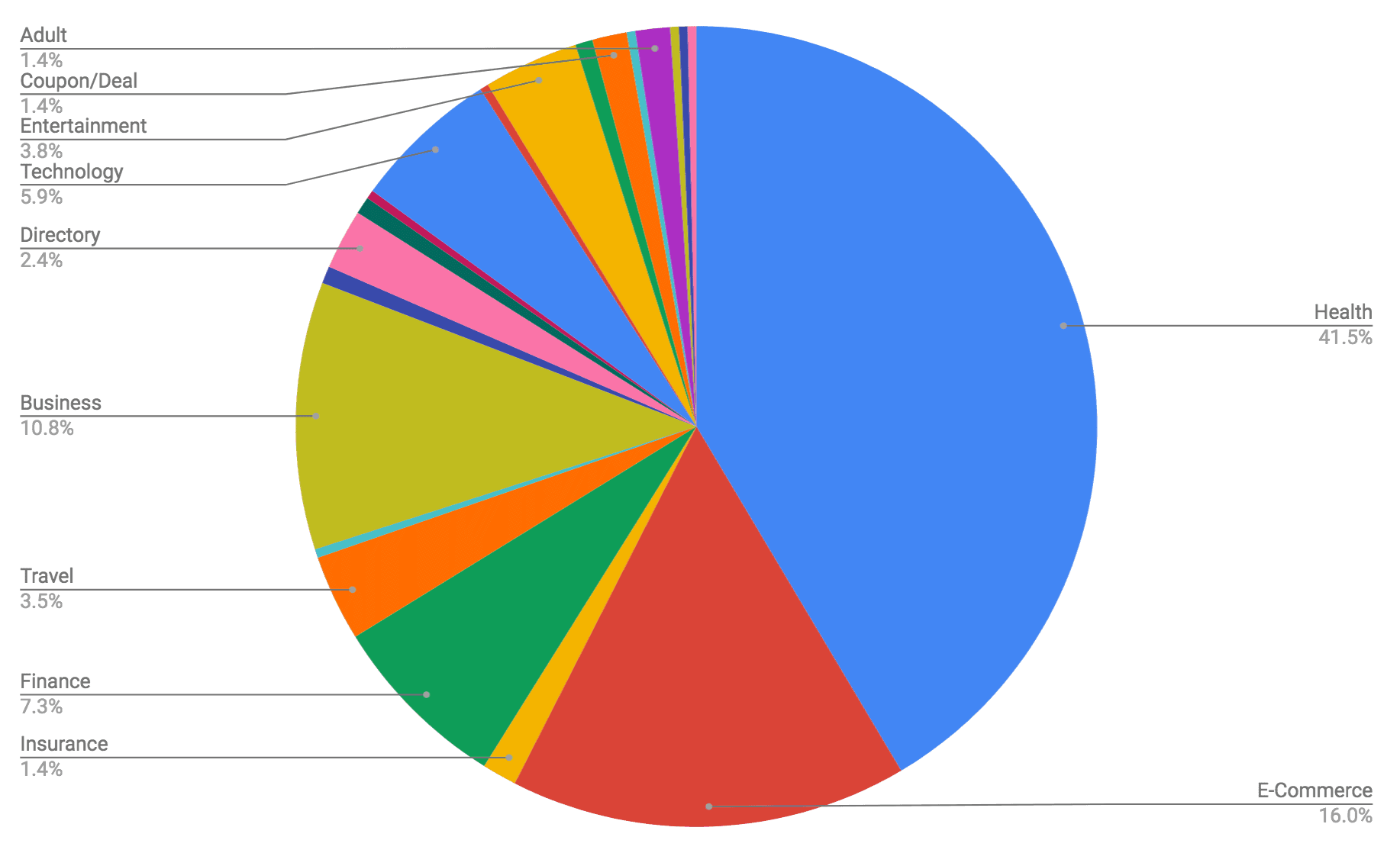
Here’s a summary of points from around the web…
- Sites that fall into the “Your Money, Your Life” category of Google’s manual raters guidelines seem to be affected most heavily
- Blogs and informational sites that offer perspectives that could adversely affect a person’s money or health seems to have seen the most movement in results
- Sites with more established authors and details on where the information is coming from seem to have improved over sites that may be missing some of this data.
- Internal linking may be a way of understanding content on a site in context, sites that have thought this through more may have seen improvements.
- Health and lifestyle sites may be the most dramatically affected
- more below…
This is by no means a comprehensive list of what has been said/rumored out in the SEO ecosystem.
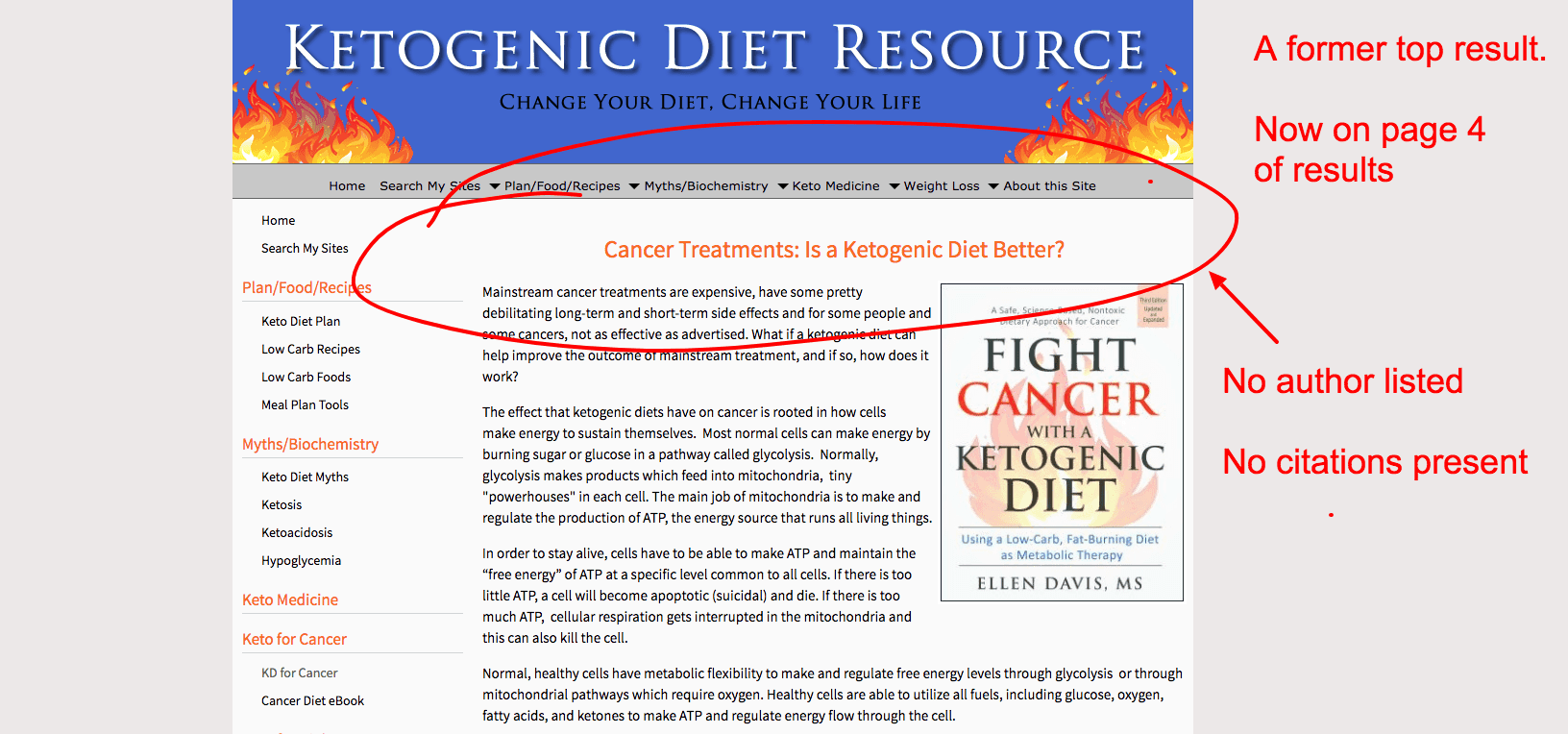
Unfortunately, you really have to be selective about what types of things you’re willing to entertain as it relates to SEO news. A lot of the data out there is essentially rumor mongering.
Objectively, we do know that Google updated their quality raters guidelines about one week prior to announcing the new Google core algorithm update. This lends some credence to the fact that many SEO’s are seeing direct correlations between Google’s guideline changes and the types of sites that seem to impacted by the core update.
So, if you are an informational blog or website that deals in subject-matter that impacts someone’s money or health, there’s a good chance this update could have an impact on your site.
What should you do with this news?
Well, the wisdom being circulated seems to point towards ensuring that searchers can identify the author and associated credibility to any content that lives on your site.
Do you currently have a way for people to see who has written any given piece of content and are you able to point towards any pieces of info or credibility that would allow the reader to reasonably assume that the information they have presented is factual?
It seems as though source credibility may be one component to all of this; however, we are going to look at data a little deeper. It’s a safe bet that you haven’t lost traffic simply because you have a shallow “About The Author” page.
What sites that improved organic traffic have in common…
We know that Google is very interested in searcher satisfaction. This is why they are interested in website speed. They’ve seen speed affect the way users behave with results. They know if the user gets the site fast, they are generally more satisfied (that’s why Google endorsed AMP).
However, there is already a lot of research showing that small speed increases offer no benefits in rankings. Going from really slow to fast is probably going to be of some benefits, but obsessing over speed has almost no rankings ROI.
You can see what websites with great speed have in common here.
Speed is really only one variable in the overall visitor experience equation. There are actually a lot more metrics that you can point to that have equal bearing on both SEO and the visitor’s experience on your website.

Below, we’ll look at some of these metrics and other attributes that websites that saw gains during the recent Google core algorithm update have in common.
Of the 20 websites we reviewed, 18 of the 20 saw neutral or positive growth in organic traffic.
NOTE: Websites that use Ezoic have been known to see overall SEO improvements due to automated A.I. testing that automatically adjusts variables to improve engagement of visitors, so it is possible that our sample is more positive than the web as a whole.
Does word count make a difference?
We’ve been fascinated about the role of Word Count in publisher revenue and traffic recently.
It seems to play an important role in engagement for publisher sites; however, at this point, it seems to be different on every site. Our recent study showed just how engagement and revenue can vary by word count on different kinds of websites.
What was sort of fascinating about this study was that the 18 websites that saw gains all had word counts that found a sweet spot around 1,000-2,500 words. Most got the majority of pageviews on pages over 750, but 1,000-2,500 was by far the category with the most pageviews for all fo these sites that gained.
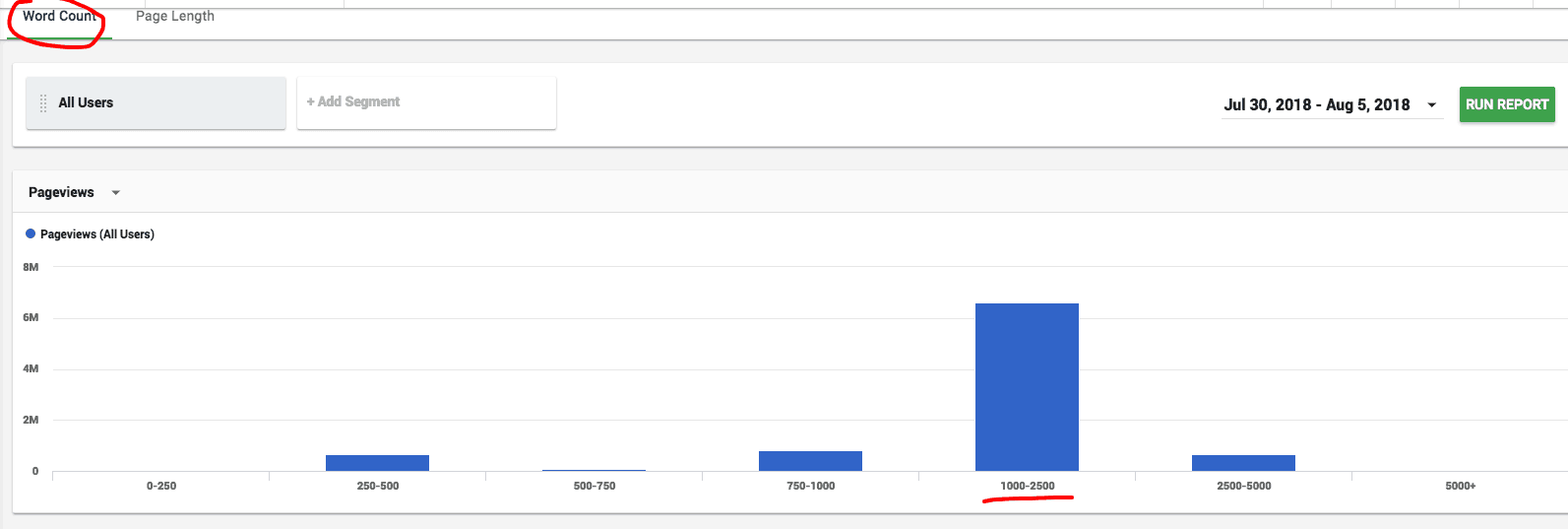
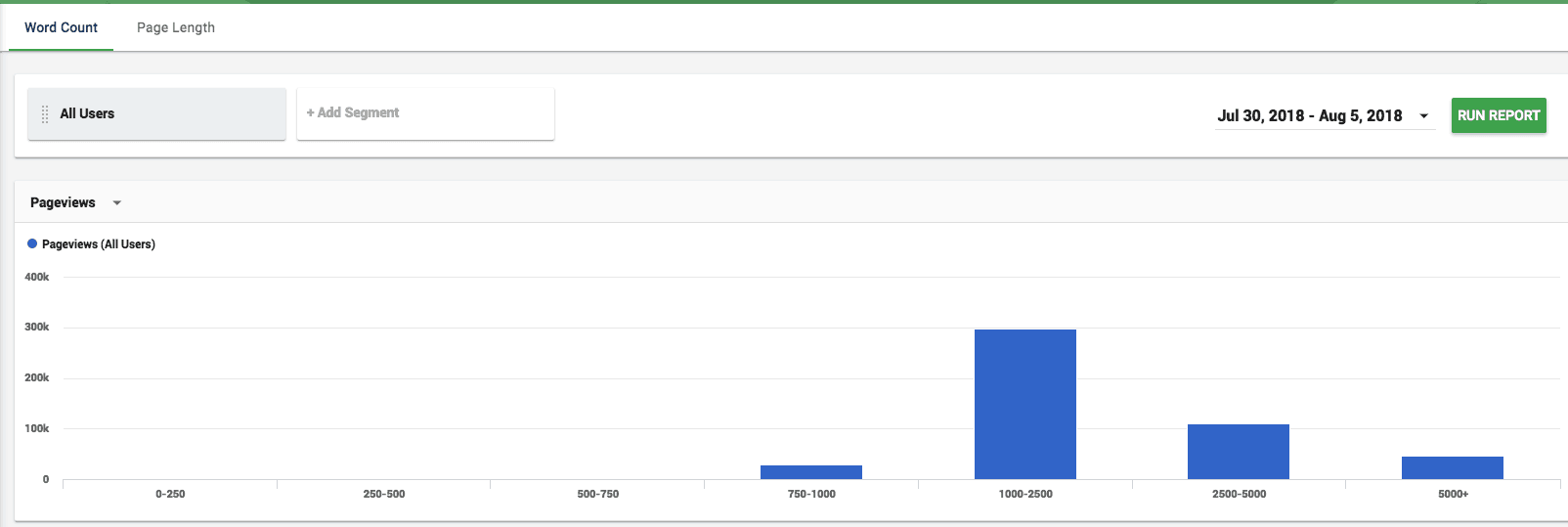
On the other side of the coin, the 2 sites in the study that saw noticeable drops in organic traffic both relied heavily on pages with less than 750 words for the majority of their traffic.
So, does word count have something to do with the core algorithm update?
It is probably not directly correlated. But, this is something we’ve previously demonstrated has an effect on visitor engagement. We know this is something Google is interested in.
Ranking factor or not, you should probably know how engagement and word count are correlated on your website.
Does scroll percentage play a role in organic rankings?
Again, Scroll Percentage is another factor I wanted to look at — not that I believe these are direct ranking factors — but because I think that Google’s ability to measure visitor engagement is improving.
Scroll percentage is another way of determining how engaged a user may be on a specific page.
Looking at our 18 sites that saw organic improvements, we saw that these sites all had above-average scroll percentages in the 50-90% category.
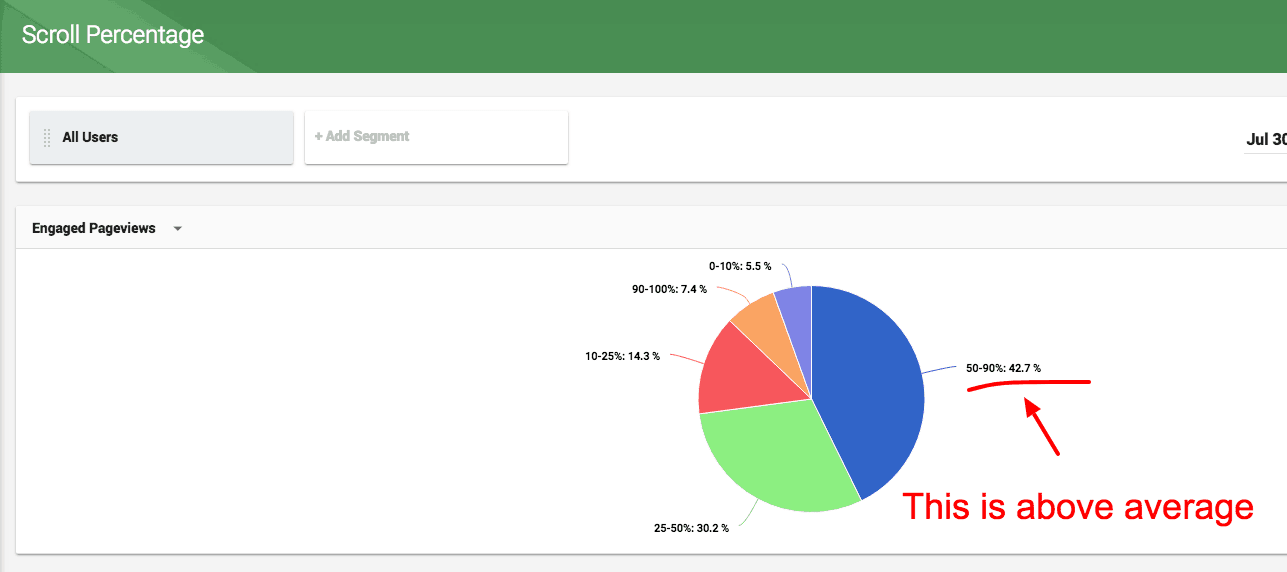
Scroll percentage is grossly different on every website, but most sites do not have 50-90% as their top category (especially when avg. word counts are above 1,000 words). This is likely indicative in many ways of the content being engaging to the user.
This is very easy to measure and can help us understand how satisfied someone may or not be with the content. It would make sense that if Google is focusing on searcher satisfaction and quality that these things would be correlated (even if not quite directly correlated).
The 2 sites that lost traffic in the study both had 25-50% scroll percentage as their top category.
What else did we learn from sites that improved rankings vs. sites that lost traffic
The subject matter for all of the sites was all over the map.
Both of the sites that lost traffic were in non-traditional CMS systems and were older websites that were largely reliant on “evergreen” content for their organic traffic.
Evergreen Content – This is content that holds true over the course of time. An example would be “A list of schools where Albert Einstein lectured”.
In my subjective observations, the sites that saw decreases seemed to have relied on several URLs for a large percentage of their traffic and these URLs had not been updated in a while. This may say something about the importance of updating content overtime — even if it is “evergreen”.
It is a small sample to say for sure, but in both cases, it was obvious in search results that other sites seemed to provide more comprehensive answers than the sites that saw declines tended to provide for their respective queries.
The takeaway here may be that it is worth reviewing your top URLs that produce the most organic traffic. Compare them to other results for their top keywords, and ensure that new content isn’t emerging that is more engaging, credible, or comprehensive than yours.
Do you still have questions?
You probably aren’t reading this if you don’t have any concerns about your organic search traffic or the recent changes.
If you can’t find the answers in this blog, leave me a comment below and I’ll do my best to help.
You can also follow me on Twitter where I often retweet credible SEO tidbits and news.

Tyler is an award-winning digital marketer, founder of Pubtelligence, CMO of Ezoic, SEO speaker, successful start-up founder, and well-known publishing industry personality.
Featured Content
Checkout this popular and trending content

Ranking In Universal Search Results: Video Is The Secret
See how Flickify can become the ultimate SEO hack for sites missing out on rankings because of a lack of video.
Announcement

Ezoic Edge: The Fastest Way To Load Pages. Period.
Ezoic announces an industry-first edge content delivery network for websites and creators; bringing the fastest pages on the web to Ezoic publishers.
Launch

Ezoic Unveils New Enterprise Program: Empowering Creators to Scale and Succeed
Ezoic recently announced a higher level designed for publishers that have reached that ultimate stage of growth. See what it means for Ezoic users.
Announcement
